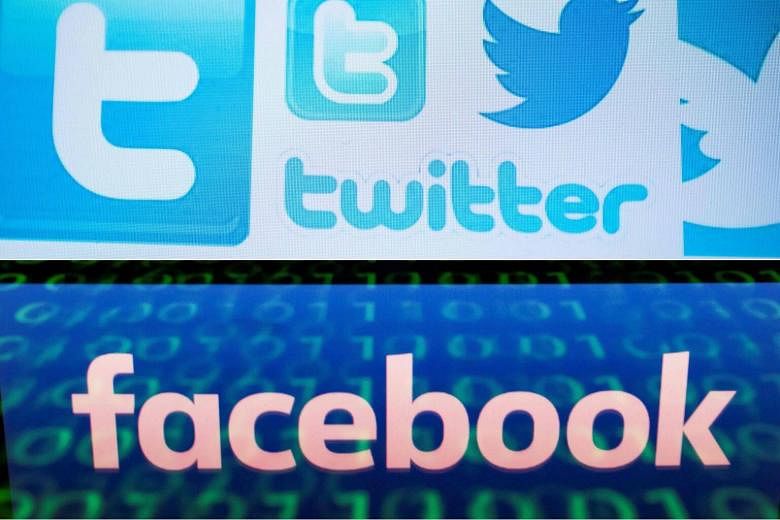WASHINGTON • There is little evidence to back up US President Donald Trump's persistent claims that social media firms "silence" or "censor" conservatives, but the notion has nonetheless gathered widespread acceptance among his considerable following.
Mr Trump returned to the topic last Friday with a tweet saying: "Social Media Giants are silencing millions of people... People have to figure out what is real, and what is not, without censorship!" The comments marked the second time in a week that he has attacked tech platforms over alleged political bias.
Days earlier, he tweeted: "Social Media is totally discriminating against Republican/Conservative voices. Speaking loudly and clearly for the Trump Administration, we won't let that happen."
Both Twitter and Facebook deny bias in policing their platforms, and various studies suggest conservatives are thriving on social media.
Still, a Pew Research Centre survey released in June found 43 per cent of Americans think major technology firms support the views of liberals over conservatives, and 72 per cent accepted the idea that social media platforms actively censor opposing political views.
Among Republicans and Republican-leaning independents, a whopping 85 per cent said they think social media sites intentionally censor political viewpoints, Pew found.
The blocking of Mr Alex Jones, who operates the conspiracy theory site Infowars, has given ammunition to those alleging motivations behind bans. And last Friday, a US House committee announced that Twitter chief executive Jack Dorsey and other tech executives will appear before a panel on Sept 5.
Mr Dorsey acknowledged in a recent CNN interview that Twitter's bias "is more left-leaning" but that this is not reflected on the platform.
Mr Angelo Carusone, president of the left-leaning Media Matters for America group, said conservatives are railing at social media firms "to game the refs", and put more pressure on the platforms.
He said this strategy worked in 2016 when Facebook "fell for a fake news story" after claims of bias against conservatives and eliminated its "trending topics" section.
Social media companies are to blame in part, because "in an attempt to mollify their right-wing critics they have reinforced and validated the critiques even though they are baseless", he said.
Mr Carusone said a study by his group and another by the social media monitoring firm NewsWhip found no systematic bias on tech platforms and concluded that conservatives had substantial presence on these platforms.
But the loud complaints from Mr Trump and his supporters can still influence public opinion even if the claims are untrue, noted Syracuse University professor of information studies Jeff Hemsley.
Complicating the debate is how social media feeds are organised by algorithms based on user profiles. While some users might claim bias, "the algorithms take into account your interests, your habits and those collectively can influence what you see", said Ms Liz Woolery, a policy analyst at the Centre for Democracy and Technology.
Mr Trump's assault raises a host of legal and political issues about the rights and obligations of social media platforms. As private entities, they can set their own terms. If they are not public spaces, they cannot be accused of censorship. Conversely, Mr Trump's threats could be viewed as an infringement of the constitutional rights of the firms, according to legal scholars.
Ms Woolery said one concern is that the pressure may prompt companies to act rashly. She noted that Facebook's curbs on political ads have an impact on many users with no political agenda because of how the policy is being enforced. "These companies are being told to do something, to do anything," she said. "They must be careful it doesn't create more problems down the road."
AGENCE FRANCE-PRESSE

